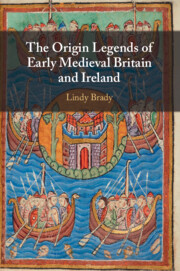The development of small-scale kingdoms in the post-Roman world of northwestern Europe is a key stage in the subsequent emergence of medieval states. Recent excavations at Rhynie in north-eastern Scotland have thrown important light on the emergence of one such kingdom, that of the Picts. Enclosures, sculptured ‘symbol stones’ and long-distance luxury imports identify Rhynie as a place of growing importance during the fifth to sixth centuries AD. Parallels can be drawn with similar processes in southern Scandinavia, where leadership combined roles of ritual and political authority. The excavations at Rhynie and the synthesis of dated Pictish enclosures illustrate the contribution that archaeology can make to the understanding of state formation processes in early medieval Europe.
